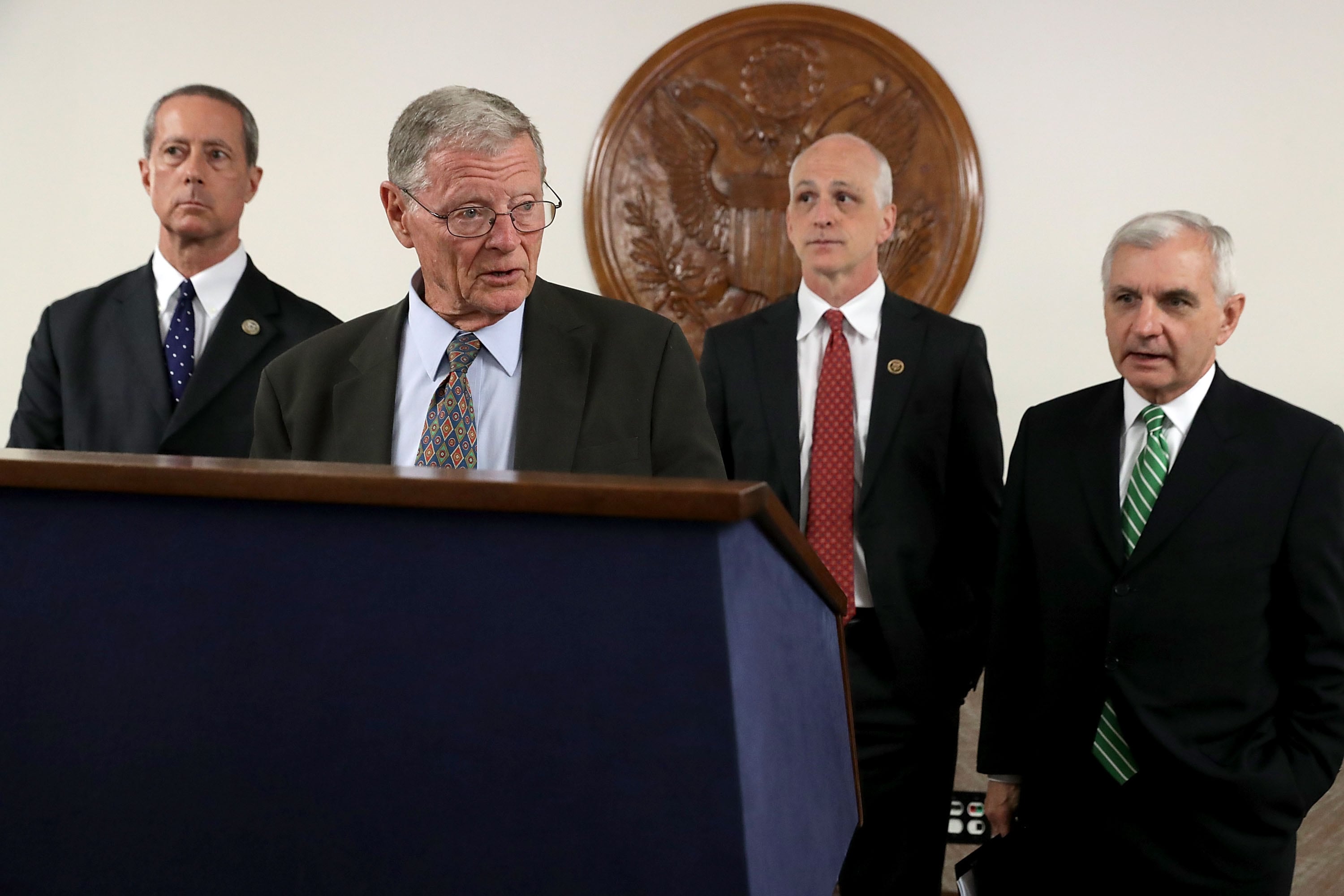WASHINGTON ― With impeachment proceedings looming and budget talks stalling, Congress will likely need a stopgap spending measure for February or March, the Senate’s top appropriator said Thursday.
A continuing resolution, or CR, would avoid a government shutdown when the last funding patch expires Nov. 21, just before Congress takes its Thanksgiving recess.
Senate Appropriations Committee Chairman Richard Shelby, R-Ala., said that if the House passes a resolution to impeach President Donald Trump, it will indefinitely dominate the the Senate’s business, forestalling budget talks.
“It takes a lot of oxygen out of the air, and some business is transacted, but it will slow everything down,” Shelby told reporters, adding that a continuing resolution could be needed into February or March.
The Senate this week voted to advance the a package of fiscal 2020 domestic spending bills passed by the House, which would include nearly one-third of all nondefense discretionary spending. The Senate is set to resume consideration of the package on Monday.
That package excludes Department of Defense appropriations, which has been snagged in a fight over border wall funding. Democrats are likely to withhold support for defense spending until a larger spending deal is reached.
The package does include measures for the Appropriations subcommittees on Commerce, Justice, Science, and Related Agencies; Agriculture, Rural Development, Food and Drug Administration, and Related Agencies; Interior, Environment, and Related Agencies; and Transportation, and Housing and Urban Development, and Related Agencies.
The Senate has not yet passed any spending bills, while the House has passed 10 of 12 spending bills, including its defense appropriations bill.
RELATED

House Armed Services Committee ranking member Mac Thornberry, R-Texas, told reporters Wednesday the Pentagon would be unable to begin 79 new-start programs or realize 39 planned production increases under the rules of a continuing resolution.
“I have 100 percent certainty that the United States is going to be tested in the weeks to come,” Thornberry said. “And yet, we have less than a month of funding for our military. Right now, I think the most important thing we can do is for Congress to put aside the squabbling and fund the military for the rest of the year.”
Separately, Senate Armed Services Committee Chairman Jim Inhofe, R-Okla., announced Thursday he would offer a “skinny” version of the 2020 National Defense Authorization Act this week as a backup plan, in case talks with congressional Democrats and the White House to reconcile the main bills become deadlocked.
House Armed Services Committee Chairman Adam Smith, D-Wash., said Thursday the president’s diversion of military construction funding to the U.S.-Mexico border wall is the sticking point in those talks, too. Passing an abbreviated bill would be “equivalent to failure.”
“Any bill that does not restrict wall funding would be challenging to bring to the House floor,” Smith said in a statement. “It is equivalent to failure ― not just for the men and women in uniform who are counting on us to pass the NDAA, but also to the national defense of our country."
Joe Gould was the senior Pentagon reporter for Defense News, covering the intersection of national security policy, politics and the defense industry. He had previously served as Congress reporter.





